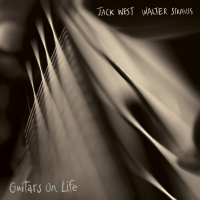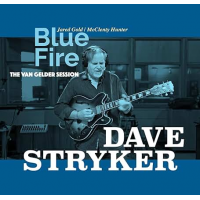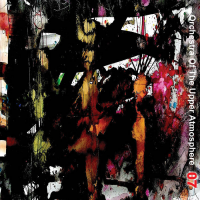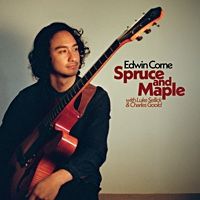Home » Jazz Articles » Album Review » Walter Smith III: Return To Casual
Walter Smith III: Return To Casual
Born and raised in Houston, Texas, Smith's father was a drummer and his mother was a pianist/vocalist and he was exposed to music at a young age. He went on to study at the Berklee College of Music in Boston and received his bachelor's degree in music education in 2003 and was the recipient of the school's prestigious "Outstanding Musicianship" award. After graduating, he moved to New York City to pursue a career in jazz. He quickly established himself as a sought-after sideman, playing with notable musicians such as Roy Haynes, Christian McBride and Terence Blanchard.
This brings us to his big-label debut for Blue Note Records. Going full circle, he named it Return To Causal. This album fulfills the promise Smith has shown throughout his career. His writing has become more meticulous and engaging, combining intricate post-bop melodies with the ability to craft intricate and layered ballads.
The album kicks off full-force with "Contra," a jagged melody with shifting time signatures tune showcasing Smith's tenor mastery. In it, he evokes the memory of Sam Rivers, obviously a big influence on Smith (the opening track of Smith's debut album was Rivers' "Cyclic Episode"). Matt Stevens on guitar provides an angular counterpoint during his solo.
"River Styx" is a haunting arrangement, allowing guest trumpet player Ambrose Akinmusire to shine. "Pup-Pow" continues in a similar vein, focusing on the ensemble playing of the entire band with Stevens' guitar adding the textures underneath. The circular, cascading flow of Smith's compositions and arrangements are reminiscent of the classic Dave Holland track, "Four Winds" from Conference With The Birds (ECM, 1973) which features Rivers and Anthony Braxton on saxophones.
"Lamplight" is the most straight-ahead track on the album, while "Amelia Earhart Ghosted Me" is a dirge-like composition, featuring the slow melancholy backing of Taylor Eigsti on the piano with drummer Scott Kendrick pushing the tempo throughout. Both tracks allow Smith to play with abandon, while the latter features Akinmusire for the second and final time on the album. There is real empathy between the two horn players.
There are several gorgeous ballads in the set, including "Shine" and the album's closing track, "Revive." Also, the one non-original track on the album is "Mother Stands For Comfort," the Kate Bush ballad. Smith III infuses the well-known popular track with his own sensibility while staying quite close to the original. The totality of Return To Casual shows that Walter Smith III has graduated from Young Lion to Jazz Great.
Track Listing
Contra; River Styx; Pup-Pow; Shine; Mother Stands For Comfort; Quiet Song; Lamplight; Amelia Earhart Ghosted Me; Revive.
Personnel
Walter Smith III
saxophone, tenorTaylor Eigsti
pianoMatt Stevens
guitarHarish Raghavan
bassKendrick Scott
drumsAdditional Instrumentation
Ambrose Akinmusire, trumpet (2, 8); James Francies, electric piano (9).
Album information
Title: Return To Casual | Year Released: 2023 | Record Label: Blue Note Records
Tags
PREVIOUS / NEXT
Walter Smith III Concerts
Support All About Jazz
 All About Jazz has been a pillar of jazz since 1995, championing it as an art form and, more importantly, supporting the musicians who make it. Our enduring commitment has made "AAJ" one of the most culturally important websites of its kind, read by hundreds of thousands of fans, musicians and industry figures every month.
All About Jazz has been a pillar of jazz since 1995, championing it as an art form and, more importantly, supporting the musicians who make it. Our enduring commitment has made "AAJ" one of the most culturally important websites of its kind, read by hundreds of thousands of fans, musicians and industry figures every month.




























